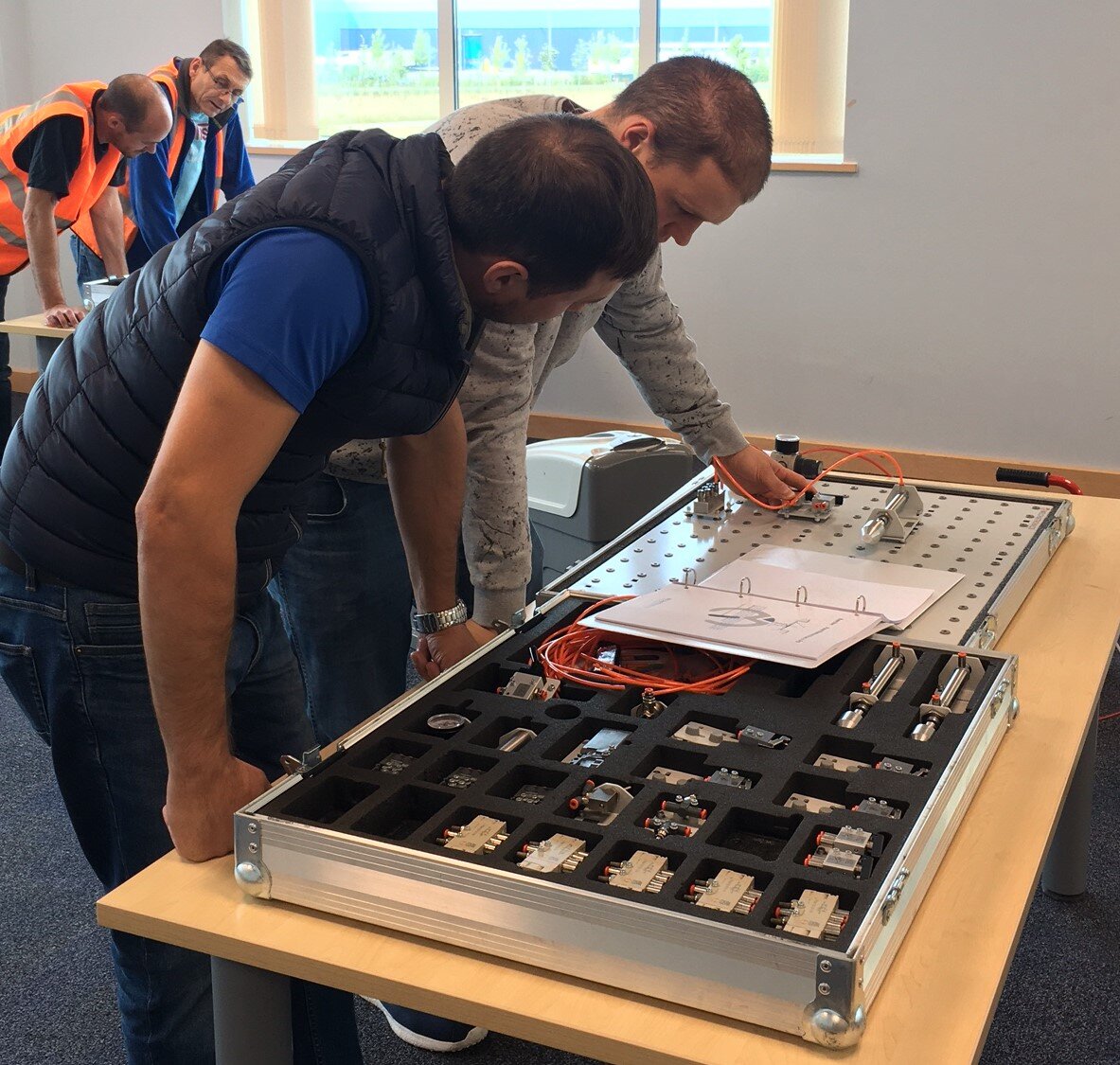Pneumatics Training
Prices Quoted Exclude VAT
Course Type | Mechanical, Technical Skills
Certificate | MCP Training Certificate
Duration of Course | 3 Days
Location | Reading
Prices Quoted Exclude VAT
Course Type | Mechanical, Technical Skills
Certificate | MCP Training Certificate
Duration of Course | 3 Days
Location | Reading
Prices Quoted Exclude VAT
Course Type | Mechanical, Technical Skills
Certificate | MCP Training Certificate
Duration of Course | 3 Days
Location | Reading
About Pneumatics Training
Fluid power provides the energy necessary to exert mechanical force and drive systems. This course was designed as a general introduction to pneumatic systems. It will teach delegates about the design construction and operation of pneumatic components. Starting with the theory of air and gas laws, pneumatic symbols and circuits, delegates then go on to select components and build circuits making the necessary adjustments for pressure, flow and sequence.
Is it right for me?
MCP’s Pneumatics course is designed for technicians, with either mechanical or electrical skills but no previous knowledge of pneumatics.
What will I learn?
It will focus on:
An understanding of safe practices
An understanding of the units and measurement scales associated with compressed air systems
Recognise pneumatic symbols drawn to the relevant ISO standards
An understanding of the functioning of pneumatic cylinders and valves
Read pneumatic circuit diagrams
Construct pneumatic circuits
Recognise the hazards with compressors and compressed air
Recognise the necessary maintenance requirements
Compliance with safety requirements in respect of the regulations
The correct use of PPE
The benefits?
Motivation and development of staff
Improved staff retention
Formal targeted training with direction and end focussed on business need
Encouragement of teamwork through coach and assessor communicating more with opposite trade
Re-focussed of training budget
SOPs and training packages are written around business need
Safe job; Timely job; Right first-time job
Improved productivity as downtime is reduced due to increased skills base
Cross cover of skills in event of absenteeism, sickness etc.
Nationally recognised qualifications where appropriate; skills are validated
Training records meet and exceed those required by HSE etc.




